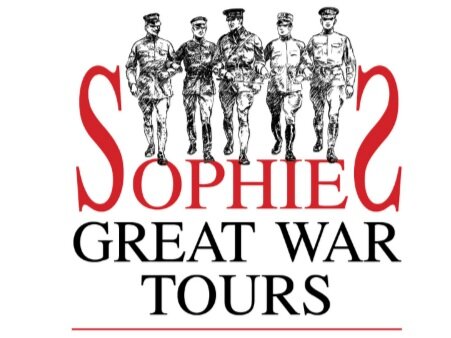Marie Elisabeth Jean Elmes was an Irish aid worker credited with saving the lives of at least 200 Jewish children in France during the Second World War.
In 2015, she became the first and so far only, Irish person honoured as Righteous Among the Nations.
Mary (as she would later be known) was born on 5th May 1908 into a prosperous home in Ballintemple, Cork city. Her father Edward was a pharmacist and her mother Elisabeth campaigned for the vote for women as treasurer of the Munster Women’s Franchise League.
At a very young age, Mary was aware of the First World War. She knitted socks for soldiers, but in May 1915 when the Cunard ocean liner the Lusitania was torpedoed by a German U-boat off the coast of Cork, she and her family joined the thousands who flocked to Cobh to help the survivors.
When she finished school, she spent a year in France and came home with near-perfect French. She went on to study Modern Languages (French and Spanish) at Trinity College Dublin where she excelled.
When the Spanish Civil War broke out, Mary would have been keenly aware of the political background but nothing could have prepared her for the suffering she witnessed when she volunteered to join Sir George Young’s University Ambulance Unit. She arrived in Spain in February 1937 and was assigned to a feeding station in Almeria.
She soon gained a reputation as a shrewd and able administrator who was clear-headed and unsentimental in the chaos of war. As the fascist army advanced, Mary moved eastwards, from Murcia to Alicante and then into the mountains at Polop, setting up and running children’s hospitals as she went. When her father died unexpectedly in Cork at the end of 1937, she missed the funeral because she refused to abandon her post when a replacement couldn’t be found.
She left Spain only when it became impossible for aid workers to stay and then she followed her beloved Spanish refugees over the border into France. Using the skills she had acquired, Mary set up workshops, canteens, schools and hospitals in the hastily erected camp-villages in southwest France.
Now operating in Vichy controlled France, Mary put her skills to use once more, hiding Jewish children. She rescued nine Jewish children from the first convoy bound for Auschwitz on 11th August 1942. She bundled them into the boot of her car and drove them to the children’s homes she had set up in the foothills of the Pyrenees and along the coast.
Between August and October 1942, Mary and her colleagues saved an estimated 427 children from Rivesaltes internment camp. Her efforts brought her to the attention of the Gestapo and in early 1943 she was arrested and jailed for six months. When asked about it afterwards, she simply said: “Well, we all experienced inconveniences in those days, didn’t we?”
When the war was over, she married Frenchman Roger Danjou in Perpignan and they had two children, Caroline and Patrick. She spoke little of the war or what she had done, refusing all accolades in her lifetime.
In 2011, nine years after her death at the age 93, one of the children she saved, Professor Ronald Friend, nominated her for Israel’s highest award; two years later she was named Righteous Among the Nations.

